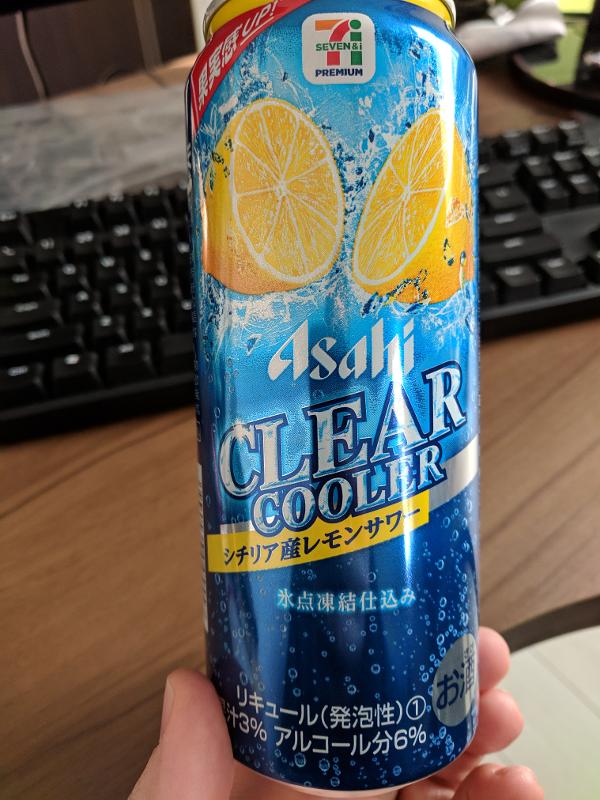This is one of the reasons I can't really bring myself to move back to the US. I love this stuff.

It tends to range from around 3% to 9% (often marketed as "Strong") alcohol content, and comes in a range of flavors that typically include lemon and grapefruit, then branch out. Since sweet flavors aren't as popular here as savory/salty/spicy/etc., there's usually a really interesting selection, which is often seasonal.
I'm pretty boring; I love my lemon chuhai (and I'm almost certain my local convenience store started stocking more after I moved here, because I do go through quite a bit). This particular one is a store brand for 7/11 -- Seven & i is their holding company; the whole thing is Japanese-owned -- and brewed by Asahi, same as the beer.
"Chu" here refers to shochu, a really cheap, often home-brewed liquor you often find where salarymen go to get wasted without breaking the bank. And it varies a lot; in southern Japan I had homebrew shochu made with massive dead bees mixed in that gave it a numbing sensation. Though not as much as habushu, which is also really awesome. "Hai" here comes from the transliteration of highball. So a meaningful translation might be "cheap booze mixed with stuff that tastes good." It's very popular.
Thanks to the holidays I'm currently enjoying this in the early afternoon on a Tuesday while my wife teaches a Korean lesson downstairs. Cheers!

It tends to range from around 3% to 9% (often marketed as "Strong") alcohol content, and comes in a range of flavors that typically include lemon and grapefruit, then branch out. Since sweet flavors aren't as popular here as savory/salty/spicy/etc., there's usually a really interesting selection, which is often seasonal.
I'm pretty boring; I love my lemon chuhai (and I'm almost certain my local convenience store started stocking more after I moved here, because I do go through quite a bit). This particular one is a store brand for 7/11 -- Seven & i is their holding company; the whole thing is Japanese-owned -- and brewed by Asahi, same as the beer.
"Chu" here refers to shochu, a really cheap, often home-brewed liquor you often find where salarymen go to get wasted without breaking the bank. And it varies a lot; in southern Japan I had homebrew shochu made with massive dead bees mixed in that gave it a numbing sensation. Though not as much as habushu, which is also really awesome. "Hai" here comes from the transliteration of highball. So a meaningful translation might be "cheap booze mixed with stuff that tastes good." It's very popular.
Thanks to the holidays I'm currently enjoying this in the early afternoon on a Tuesday while my wife teaches a Korean lesson downstairs. Cheers!
